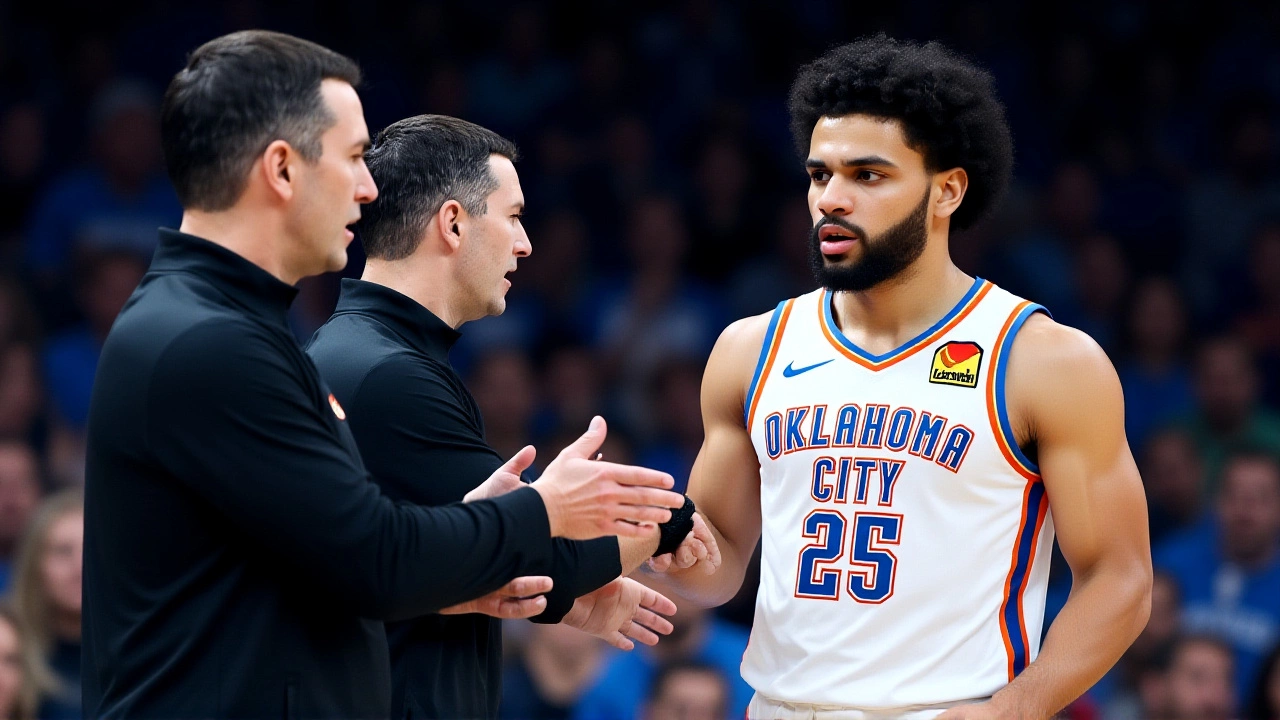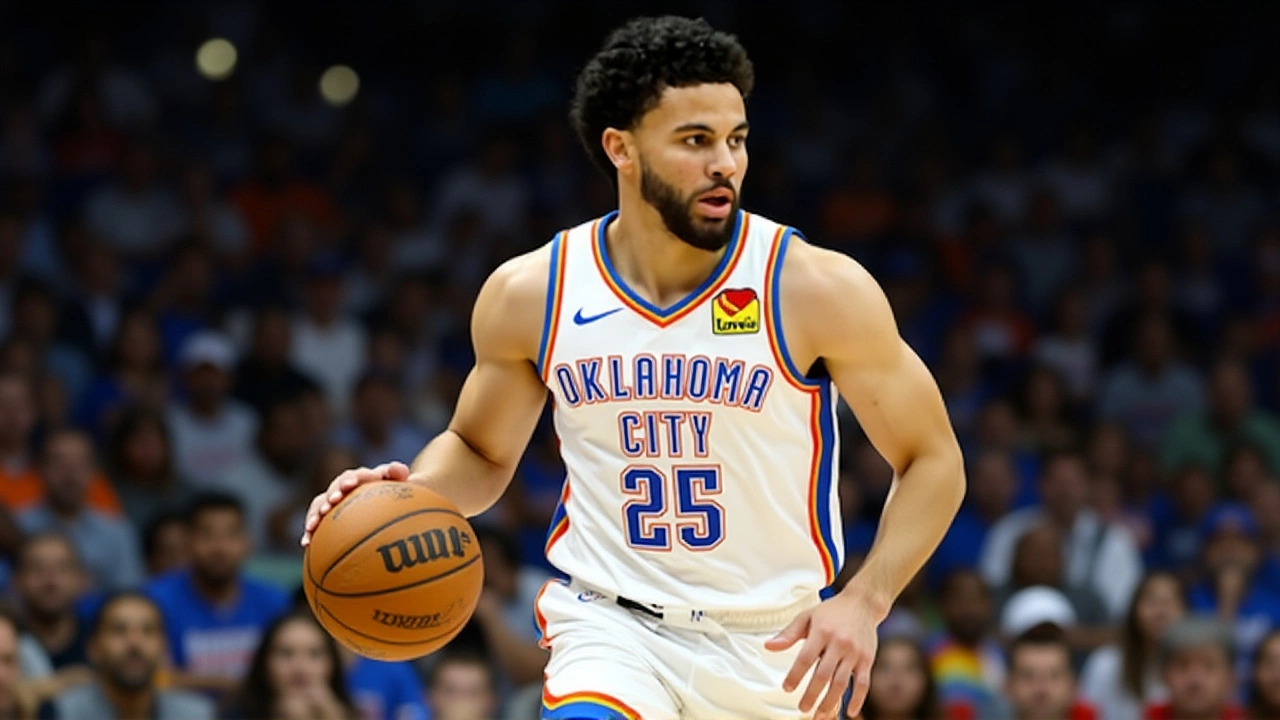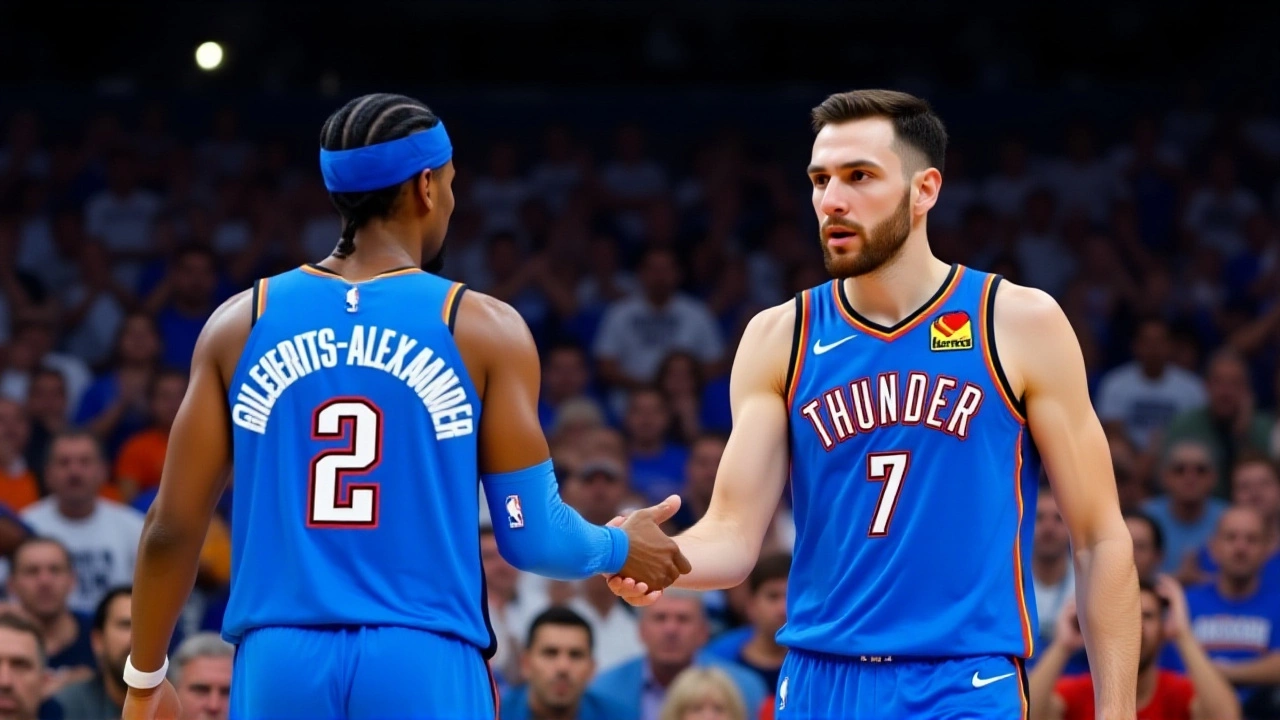OKC Thunder lock up guard Ajay Mitchell on three‑year, $8.7 M deal

When Ajay Mitchell, a 23‑year‑old Belgian‑American guard, Belgian/American signed a new three‑year contract with the Oklahoma City Thunder on June 30, 2025, the NBA community took notice. The deal, worth $8.7 million in total, was the latest move by a front office that has become synonymous with spotting diamonds in the rough.
Background: Mitchell’s rapid rise
Born on June 25, 2002, in Ans, Belgium, Mitchell grew up watching both European leagues and NBA highlight reels. His father, Barry Mitchell, a former Norfolk State University standout who later played in the Continental Basketball Association, helped shape his early skill set. After flashing at the under‑18 level for Belgium, the young guard declared for the 2024 NBA Draft and was selected 38th overall by the New York Knicks on June 27, 2024.
That night, Oklahoma City swooped in, trading a future second‑round pick (the 40th overall) and cash considerations for Mitchell’s rights. The Thunder’s gamble paid off quickly; on July 6, 2024, he inked a two‑way contract that let him split time between the NBA squad and its G‑League affiliate, the Oklahoma City Blue. By the time the 2024‑25 season rolled around, Mitchell was clocking 36 regular‑season appearances, averaging 6.5 points on 49.6% shooting and a respectable 38.2% from deep.
Contract details and financial implications
The new agreement locks Mitchell in through the 2027‑28 season, with a $3 million cap hit for the 2025‑26 year and a sliding salary structure that totals $8,700,000. That figure sits just shy of the $9 million ceiling reported by ESPN, but it aligns perfectly with the Thunder’s salary‑cap philosophy: keep promising talent affordable while preserving flexibility.
Negotiations were led by Thunder general manager Sam Presti alongside Life Sports Agency’s chief executive Todd Ramasar and agent Mike Simonetta. The trio hammered out the deal after the Thunder declined Mitchell’s team option on June 29, 2025. By signing on July 6, 2025, the guard became the first player to move from a two‑way contract to a fully guaranteed multi‑year deal under Presti’s watch.
- Duration: 3 years (2025‑26 to 2027‑28)
- Total value: $8,700,000
- Annual cap hit: $3,000,000 (first year)
- Projected career earnings after deal: $15,278,577
- UFA status: Unrestricted free agent after 2027‑28 season

Thunder’s championship context
The timing couldn’t be more poetic. Just weeks earlier, on June 22, 2025, the Thunder captured their first NBA championship, a run that saw Mitchell contribute off the bench in eight playoff games. He logged 8.0 minutes per contest, shooting a sizzling 53.6% from the field and 45.5% from three‑point range. While he didn’t start a game, his energy and defensive hustle were praised by teammates and coaches alike.
His title also makes him the second Belgian player ever to hoist an NBA ring, following D. J. Mbenga, who won with the Dallas Mavericks in 2011. That lineage adds a dash of international pride to Oklahoma City’s victory parade.
Reactions from management and analysts
“We see Ajay as a core piece of our next‑five‑year window,” Presti said in a post‑game press conference. “His shooting upside, defensive instincts, and work ethic fit exactly what we need to stay competitive.”
Life Sports Agency’s Ramasar echoed that sentiment, noting the contract “reflects a win‑win: the Thunder get a cost‑controlled talent, and Ajay gets stability to continue his development.” Analysts at ESPN highlighted the deal as “a savvy cap‑friendly move that preserves flexibility for future free‑agent pursuits.”
Not everyone is convinced. Some pundits argue that Mitchell’s limited minutes during the title run don’t justify a $3 million cap hit, suggesting the Thunder could have explored trade options instead. Still, the consensus leans toward optimism, especially given Presti’s track record of turning second‑round picks into contributors.

What the deal means for OKC’s future
Looking ahead, the Thunder’s roster is stacked with young talent—Shai Gilgeous‑Alexander, Josh Giddey, and Chet Holmgren—plus seasoned veterans. Keeping Mitchell on a reasonable contract gives the team depth at the guard spot without jeopardizing luxury‑tax thresholds.
Should injuries strike or the team need a spark off the bench, Mitchell’s three‑point shooting (nearly 40% in his rookie season) could be the X‑factor. Moreover, his international experience may open doors for the Thunder in European markets, a subtle but potentially lucrative side benefit.
Frequently Asked Questions
How does Ajay Mitchell’s contract affect the Thunder’s salary cap?
The three‑year deal carries a $3 million cap hit for the first season and modest increases thereafter, keeping the Thunder well under the $136 million luxury‑tax threshold. It provides cost‑controlled talent while preserving flexibility for future signings.
What role is Mitchell expected to play in the upcoming season?
Presti envisions Mitchell as a backup shooting guard who can stretch the floor, defend multiple positions, and give the starters a rest without sacrificing offensive flow. His three‑point accuracy makes him a valuable bench scorer.
Why is Mitchell’s Belgian heritage significant?
He becomes only the second Belgian player to win an NBA championship, joining D. J. Mbenga’s legacy. This boosts basketball’s profile in Belgium and may inspire more European prospects to view the Thunder as a welcoming destination.
When will Mitchell become an unrestricted free agent?
His contract runs through the 2027‑28 season. At the end of that campaign, when he’s 26, Mitchell will hit UFA status, giving him the freedom to test the market or re‑sign with Oklahoma City.
What did the Thunder’s championship season reveal about Mitchell’s potential?
Even in limited minutes, he shot over 53% from the field and 45% from three‑point range in the playoffs, suggesting he can thrive under pressure. Those numbers convinced the front office that he merits a longer‑term commitment.